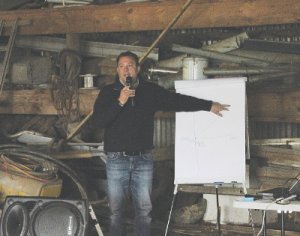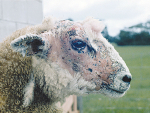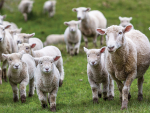DAIRY farmers now can use genetics to reduce the risk of facial eczema (FE) on their operations says CRV Ambreed breeding programme manager Aaron Parker.
Parker recently announced the availability of 12 FE-tolerant high BW progeny tested bulls at a DairyNZ Northland monitor farm field day on Alistair and Lynn Candy’s 479ha property 10km west of Okaihau.
The five Jersey and seven Holstein Friesian bulls are the result of a programme the cattle genetics company has had in place since 2000 but which, says Parker, has only now started to produce results.
Parker says farmers have pushed animal health conditions aside in recent years, with potentially disastrous results, especially as AgResearch findings suggest the average dairy cow was 20% more susceptible to FE than in 1985 and is 20% more likely to react negatively to a challenge.
“When you see 3% clinical cases in herds, 70% of the herd will be sub-clinical,” says Parker.
“What we’re seeing is just the tip of the iceberg.”
And with almost half of the national herd living in high risk areas – Northland, Auckland, Waikato, Tarnaki and the Bay of Plenty – Parker says the company is so concerned about this that it has been involved with FE tolerance for the last 10 years.
CRV Ambreed started FE tolerance research by challenging progeny tested bull calves with FE heavy pastures about 12 years ago. But Parker says the company has piggybacked a lot on work done by AgResearch with sheep.
In research AgResearch had learned that the high presence of the enzyme gamma glutamyl transferase (GGT) corresponded heavily with the susceptibility of stock to FE.
The company worked with AgResearch and DairyNZ to track the GGT level of cows, and has built up a database of GGT levels in 17,000 dairy cows since the 1980s.
The work was first done with progeny tested bulls, says Parker, but animals were not able to be developed fast enough to keep up with the remainder of their genetic catalog largely because they had to use bulls that were four years old to have the necessary records from daughters.
“Those bulls were very good for tolerance but not good enough for the other traits required.”
The company changed tactics in 2009 says Parker, pulling three yearling bulls out of their progeny tested programme a year and putting them into the FE resistance programme.
This fast-tracking of animals has allowed Ambreed CRV to produce bulls with a 141-222 BW that will make the herd 20% more resistant to FE within one round of mating.
“You’re winding back the clock 25 years,” says Parker. “That’s a huge result.”
Straws from the FE resistant bulls have been been available in a soft launch since May and Parker expects them to become more widely available from next season.
http://crv4all.co.nz


















